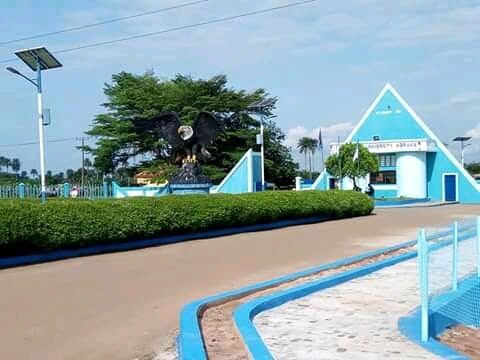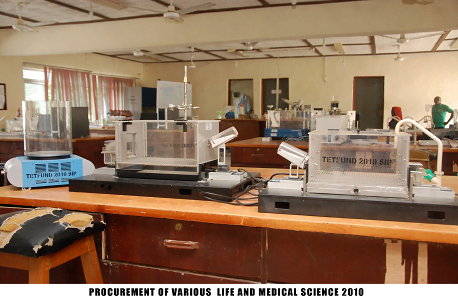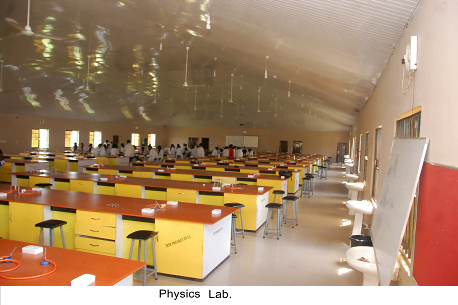DEPARTMENT OF FINANCE AT DELTA STATE UNIVERSITY: The Department of Finance is one of the academic departments at Delta state University with well qualified and experienced full-time and part-time faculty.
The Department currently offers the following degree programmes at the undergraduate level:
- BSc Administration (Banking and Finance).
- BSc Administration (Insurance)
The research interests of faculty in the Department include banking, corporate finance, corporate
governance, development finance, financial market development, international finance, health
finance, financial economics, risk management, insurance management, international trade, micro
finance, small business and entrepreneurial finance.
Recommended articles specially for you
- How to Easily Gain Admission into Delta State University (Delsu)
- How to Pass DELSU Post utme (Absolute Guide)
- Top 4 Mistakes Delsu Aspirants Make – (Number 2 will shock you)
- How to Check Your DELSU Post UTME Result Easily
- Delsu Change of Course & How to Apply (Guide)
- Updated List of All the Courses Offered in Delta state university
- 7 Understandable Reasons Why you will NOT GAIN Admission into DELSU
HISTORY OF THE DEPARTMENT OF FINANCE AND BANKING, DELSU.
Finance and Banking was one of the areas of specialization under the Master of Business Administration (MBA) programme of the former Graduate School of Management and Business Administration.
With the creation of undergraduate programme in Management Sciences in 1984, Finance and Banking became one of the four departments that formed the “just coming into existence” faculty of Management Sciences.
Other departments in the faculty include Accounting, Management, Marketing, and Hospitality and Tourism Management.
The department took off with few academic staff some years back and only a few students. It has over the years grown into modest size with over 300 students currently enrolled at various levels of the programme.
Objectives of B.Sc Finance and Banking Programme
The objectives of the departmental B.Sc Programme are to:
- Provide students with broad-based education in all functional areas of finance so as to be able to analyse financial issues at both micro and macro levels in our dynamic economy.
- Educate, train and produce graduates sufficiently equipped to serve in private and public sectors of the Nigerian economy thereby, contributing to national growth.
- Produce graduates sufficiently equipped to undertake further studies in the field of finance and banking at graduate level.
- Produce graduates who can undertake entrepreneurial ventures.
The Philosophy of the Department B.Sc Programme
The Philosophy of the Programme is the comprehensive development of the individual by impacting relevant theoretical and practical knowledge, self-discipline and reliance which will equip the individual with the ability to identify and understand diversified financial problems and methods of financial analyses/operations in the financial, non-financial and banking institutions.
Vision of the Department
The vision of the department is to become a top rated department amongs Nigerian and other Universities actively involved in educating students, training and research activities thereby, serving as a reference point for research to other Universities and higher institution of learning.
Mission of the Department
To provide finance knowledge to our students and potential member of the public in an organized and most articulate manner, which will accelerate the dissemination of the knowledge of finance discipline and contribute to growth of the private and public sectors of the Nigerian economy.
Shared Values of the Department
The Shared values of the department are :- (QERTP) – Quality Teacher, Efficiency, Research, Training and Publications.
Structure of (Finance and Banking) Degree Programme
The department runs programmes of four years for its Bachelor’s Degree. The degree programme is designed to meet and exceed the minimum academic standards set by the National Universities Commission (NUC). It has the following provisions:
1. General Studies Courses: These are University-wide courses, taken in the first year of the degree programme. They are designed to improve the basic intellectual and communication skills of the students, understanding of contemporary society as well as the historical and cultural origins of the people of Nigeria.
2. Foundation Courses: These are basic courses in the Faculty of Management Sciences, that teach the principles and tools of Management problem analysis. These courses include at least one courses in each functional area of management plus courses in economics, mathematics, statistics, computer science and data processing. These courses are taken by all students in the Faculty at appropriate levels.
3. Community Service Course: This is a field project directed towards service to the Community or to the University and is an integral part of all degree programmes. The objective of the project is to involve both staff and students in practical way with some of the problems of society as well as with efforts to provide solutions to them, and to inculcate and develop in staff and students, a consciousness of their responsibilities to society and the satisfaction of rendering service to others. The project, which is practical in nature requires the application of some of the skills being acquired in the degree programme to service the community, and generally involve manual work. It is credit-earning and an essential requirement in all degree programmes.
4. The Department major courses: These are courses in the student’s major field of interest. The majority of the courses are offered in the last two years of the programme.
Undergraduate Admission: Entry Requirements.
The minimum entry requirement into the Undergraduate Programme of the Department of Finance and Banking shall be the General Certificate of Education, WASC, NECO, & SSC (or equivalent) with credit in five subjects obtained at not more than two sittings.
These five subjects must include English Language, Elementary Mathematics and Economics. Admission into the programme shall normally be through the Joint Admission and Matriculation Examination (JAMB) and Delta State University’s Screening.
The subject combinations or each department is specified in the JAMB BROCHURE.
Academic Advisers
- Every student is attached to an Academic Adviser who is a member of the academic staff and who will advise him/her on academic affairs as well as on personal matters. Academic advisers are expected to follow their students’ academic progress and provide counselling to them.
- It is the duty of the Head of Department to assign an academic adviser to each student in the programme at the beginning of each session.
- Academic advisers should give clear information on the notice boards about appropriate times and places at which they will be available to students who wish to consult them.
Registration of Courses
The period for normal registration is the first week of each academic year, excluding the orientation week.
- The period for late registration is the sixth week of the first semester of the academic year. Students who made instalment payment in the first semester are to pay the outstanding instalment on or before the sixth week of the second semester of the academic year.
- Course registration is the responsibility of the student. Course registration are to be done online by the student before the close of the online registration portal.
- In registering students, the parent department should ensure that students register for all previously failed courses in which the programme requires a pass, and meet the prescribed requirements for each course registered.
- Furthermore, that the total credit units registered are not less than 5 or more than 24 per semester.
- Any registration completed after the time specified will be null and void and will not be credited to the student even when he/she has taken passed an examination in the course.
- Students are not allowed to sit for examinations in courses for which they have not previously registered. Such actions are fraudulent and culprits will be appropriately disciplined.
- Any genuine request for late registration must be made in writing to the Head of Department. For which such complaints will be forwarded to the ICT for ratification.
- A list of students registered for each course should be kept. This list should be displayed for one week immediately after the close of registration for necessary corrections.
- The parent faculty and the parent department retain one copy each of this list and forward three copies to the Teaching Faculty to be distributed as follows: one to the Faculty, one to the Department and one to the Course Lecturer. This list becomes the authentic register for the course examination.
- For all students, the following forms are returned to the Academic Office: MIS-01 (SF) for fresh student, MIS-02 (Course Registration Form) and MIS-04 (Fee Form).
- Students should be encouraged to join their professional associations, but the dues for such association should not be tied to registration forms.
- Application for adding or dropping a course must be made on the prescribed ADD/DROP form and of the Heads of Department concerned, not later than four weeks before the examination in each semester. Any change of course made by altering the registering form will be null and void.
Deferment of Admission
A candidate who is offered admission and is qualified at the time, but is unable to take up the offer at the required time may have the admission deferred.
This request must be made in writing stating reasons, and forwarded through the Head of Department of the approved course/programme for which admission was offered.
To qualify for consideration for transfer to the programmes in Management Sciences after the completion of the first Academic Year, a student shall be required to obtain a CGPA of four point or above at the time of application.
Auditing of Courses
Students may attend a course outside their prescribed programme. The course shall be recorded in their transcript only if they have registered for it with approval of the Head of their Department and the Dean of their Faculty and taken the prescribed examination.
An audited course shall not be used in calculation the CGPA.
Change of Degree Programme
A student who has been admitted to a degree programme on satisfying the minimum requirements for entry into the University as well as course requirements for the Faculty and Department shall not normally, be allowed, to change until he/she has completed the first academic year in the degree programme.
A student shall be allowed to change Faculty or department to that in which the programme specified by the Scholarship Award is available, provided that he/she meets the requirements of the Faculty of Department to which a change is desired.
Application to change Faculty shall formally be made by the student concerned through the Head of the recent Department and Faculty, who recommends to the Faculty Board on a prescribed form (in quadruplicate) obtainable from the Faculty. Duly completed copies of the Change of programme Form shall be forwarded to the Committee of provost and Deans for Approval and to the Registrar for certification.
Thereafter, the Registrar shall retain a copy and forward a copy each to the two heads, respective Deans and the student concerned. Intra-Faculty transfer should be done by the Faculty Board and the Committee of Provost and Deans informed.
To qualify for consideration to transfer to the professional programmes in Medicine, Engineering and Management Sciences a student shall be required to obtain a CGPA of 4 points Or above at the time of application.
Inter-University Transfer
A student from another University may seek a transfer to any of the programmes of Delta State University.
Such applicants must write, enclosing relevant credentials and transcripts of academic records, to the Registrar, who shall normally refer the request to the appropriate Head of Department with the applicant’s official transcript.
The Head of Department, after considering the application, shall make an appropriate recommendation through the Dean to the Committee of provost and Deans shall be final. All such applications must be processed before the beginning of the academic year.
All applicants for Inter-University transfer shall be required to be in good standing in their previous University.
A student who has been expelled or suspended from any University for acts of misconduct shall not be eligible for transfer to Delta State University.
The residency requirement shall be a minimum of two years.
Requirement for a Bachelor’s Degree
In order to obtain a Bachelor of Science (B.Sc) degree in the department of Finance and Banking, a student shall meet the following requirements.
- Complete a programme for students approved by the University Senate for the Faculty.
- A score, not below 40% must be attained in the prescribed courses and research project
- Satisfy all financial obligations to the University, and other requirements relating to attendance and character,
- Be formally recommended by the Faculty Board of Studies to the University for the award of degree.
Examinations
Course Examinations
- Every Course of instruction shall be continually assessed, and examined at the time which it is given. The examination is weighed 70%.
- 30% is assigned to continuous assessment weighting by the University in view of the work input expected from students in the various programmes of Study.
- Subject only to administrative supervision by the Dean’s Office the conduct of course examinations shall be the responsibility of the Head of Department.
- Continuous assessment of students should be by means of term papers, frequent tests (formal and informal), assessment in workshops/ assignments, etc. as may be applicable to respective disciplines.
- Part-time teachers, where necessary, may be appointed as Internal Examiners
- Every course examination (i.e. question papers and grading) shall be moderated normally by one external Examiner as may be determined by the respective Faculty Boards of the Faculty. Moderation of course examinations shall be limited to the end of the semester examinations.
- The results duly signed by the Dean shall be published provisionally within 24 hours after approval by the Faculty Board.
- The Dean shall, thereafter, on behalf of the Faculty Board, present the results to Senate for final approval.
- The Registrar shall, after the approval by Senate, take custody of the results and notify the students and their sponsors.
Absence from Examination
Students are obliged to sit for all examinations with their mates at the same time. No special arrangements shall be made for any student who failed to write the examination with other classmates originally.
However, any student who has good and acceptable reasons for not writing a scheduled examination shall apply to the Vice Chancellor through the Dean and Head of Department for senate approval to write the said examination as first attempt at the next available opportunity when subject would be examined.
Procedure for Review of Scripts of Aggrieved
Students shall be entitled to see their marked examination scripts if they so desire provided appropriate steps are taken to safeguard the security of scripts.
Any student who is aggrieved about the grading of a course examination may petition his/her Department in the first instance through the Academic Adviser. The Head of Department shall refer the petition to the Dean of the Faculty who shall cause the scripts to be reassessed and the scores presented to the Faculty Board for determination.
Forgery
Any student found guilty of forging certificate, transcripts and other official documents shall be expelled from the University.
Everything you need to Know about Delta state University
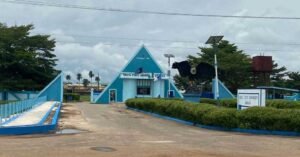
Delta State University which is popularly known as DELSU, is one of the most prestigious state owned university in Nigeria.
Delsu currently operates a multiple campus system with three distinct campuses, which are about 200 km apart.
The University has its main Campus located at Abraka, Delta State and other campuses in Anwai-Asaba and Oleh which are still in the same state, Delta.
Delta State University is one of the 25 federal universities that is been controlled, overseen and accredited by the National Universities Commission.
As of the time of this post, the University offers a wide range of educational programs, ranging from full time certificate, degree and diploma programs to part time weekend and evening degree programs.
Delsu also offers post graduate studies up to doctorate level.
The University possesses a student/staff counselling centre, an e-learning centre, students and lecturers accommodation facilities, sporting complex and host of other amenities.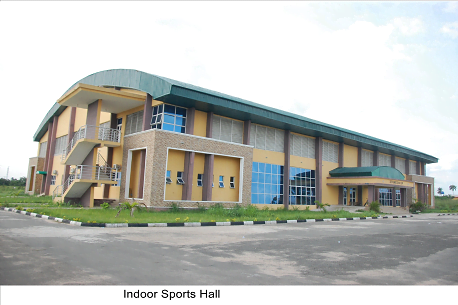
This unique university boasted of about 36,000 student population as at the 2007/2008 academical session.
Frequently Asked Questions about Delsu
We took our time to research about the frequently asked questions about Delsu and came up with a bunch of them.
What is the full meaning of Delsu?
Delsu is an abbreviation for Delta State university.
When was Delsu founded?
Delta state university was established in the year 1992.
What is the motto of Delta State University (Delsu)?
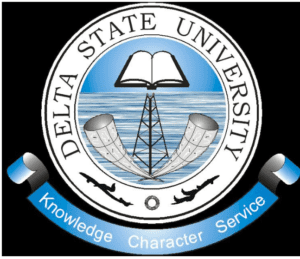 Knowledge Character and Service.
Knowledge Character and Service.
What is the official website of Delta state university (Delsu)?
The university has two official websites which it uses to disperse information to the public.
www.delsu.edu.ng and www.delsuonline.com
www.delsu.edu.ng offers every thing you need to know about the school such as weekly bulletins, library information, gallery, students admission status, etc.
While www.delsuonline.com offers portal services such as, students and admin logins, printing of school fees receipt, replacement of Lost identity cards, result checking, printing of departmental courses, etc.
Does Delsu offer Scholarships?
Delta state university offers scholarships, bursary, grants and different awards. The University has a special scholarship plan and grants to various categories of students.
Is Delsu a federal or state University?
Delta state university is a state owned university, which is overseen and accredited by the National University Commission
Where is Delsu Located?
Delsu is located in Delta state, Nigeria. It has it’s main campus in Abraka and other campuses in Anwai-Asaba and Oleh.
The History of Delsu
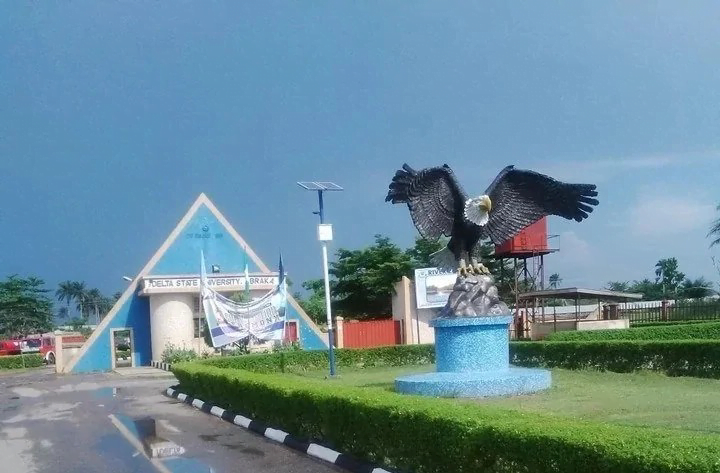 Delta State University(Delsu) was generally recorded as a center of Education.
Delta State University(Delsu) was generally recorded as a center of Education.
It began as a Government Teacher’s Training college during the colonial period and a few years into the post colonial times.
Delsu became an educational college that awarded the Nigerian Certificate of Education (NCE) from the year 1971 to 1985.
The University got affiliated with the University of Benin in the year 1981, and started offering degree programmes from 1981 till 1985.
Before it became the faculty of Education of the then Bendel State University with its main campus in Ekpoma.
The creation of Edo and Delta states in the year August 1991 and the conversion of the formerly known Bendel University Ekpoma, in December 1991 triggered the establishment of the independent Delta State University Abraka.
This move was carried out by the then Executive Governor of the state, Olorogun Felix Ibru on the 30th of April 1992.
Delta State University began with Five faculties at its early stage:
- Faculty of Education.
- Faculty of Agriculture.
- Faculty of Arts.
- Faculty of Science.
- Faculty of Social science.
In the year 1995, the State government enacted a policy which enabled the University to posses 3 campuses.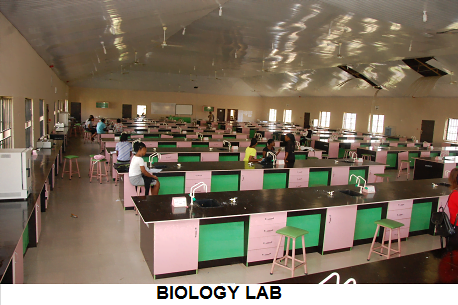
These campuses were distributed within the 3 senatorial districts of Delta state.
As a result of this enacted policy, the main Campus was established in Abraka, and the other campuses were established in Anwai-Asaba and Oleh.
Delsu Campuses and Their Faculties.
Delta State University’s academical programmes/faculties are currently distributed among the Campuses below.
Delsu Abraka Campus
 Abraka is an urhobo kingdom in Delta state, which has been made popular due to the fact that the main Campus of Delta state university (Delsu) is located there.
Abraka is an urhobo kingdom in Delta state, which has been made popular due to the fact that the main Campus of Delta state university (Delsu) is located there.
Faculties in Delsu Abraka Campus.
- Faculty of Education
- Faculty of Art
- Faculty of Social science
- Faculty of Pharmacy
- Faculty of Science
Delsu Anwai- Asaba Campus.
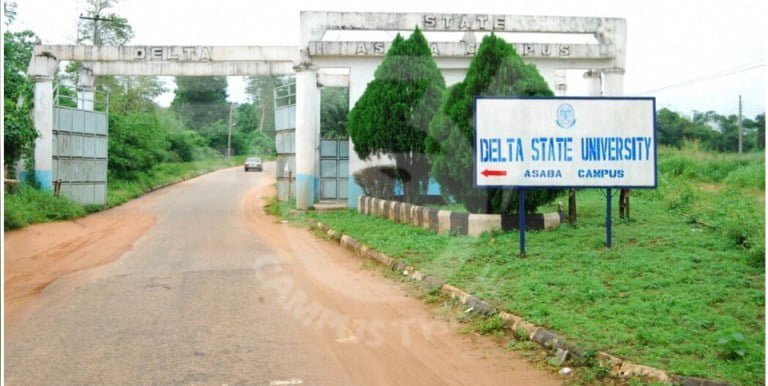 Asaba is a city found in Delta state, which is located at the western edge of the Niger River.
Asaba is a city found in Delta state, which is located at the western edge of the Niger River.
It is a fast growing urban area which possesses one of the Delta state university’s campuses.
Faculties in Anwai-Asaba campus
- Faculty of Agriculture
- Faculty of Accountancy
- Faculty of Environmental Studies.

Oleh Campus
Oleh, the headquarters of the Isoko south local government area is home to one of the Delta State University Campuses.
It was established as a result of the amended Edict in the year 1995
Facilities in Oleh Campus
- Faculty of Law
- Faculty of Engineering

Delsu Hostel Accommodation (Halls of Residence)
The state owned university offers a wide range of accommodation for both post graduate and undergraduate students.
These Halls of residence are distributed through out the various campuses.
Abraka Halls of Residence (hostel)
Male Accommodation
- Abraka hall for males
- Canon Mason Hall for males
- Medical hostel
Female Accommodation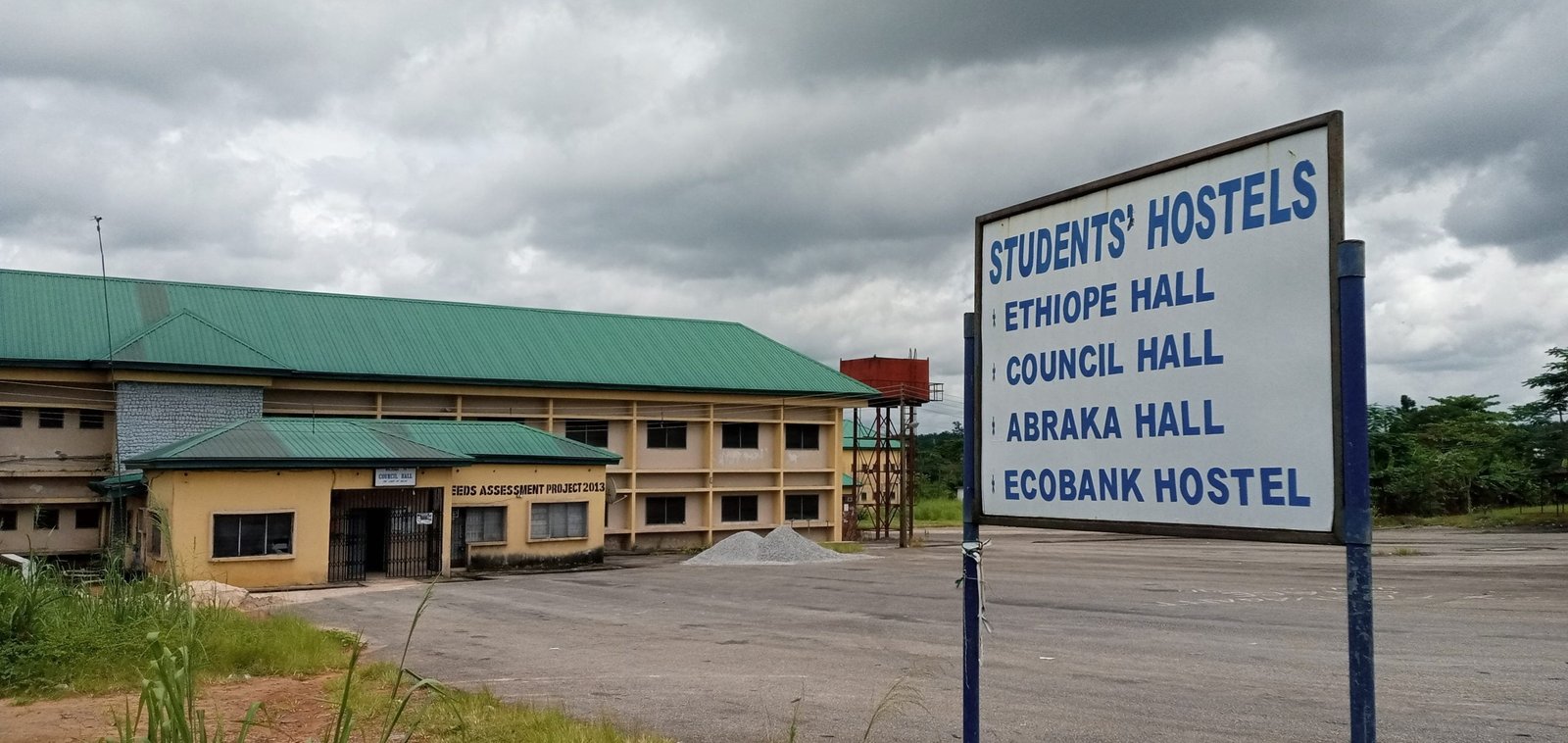
- Council Hall .
- Eco hall
- Ethiope hall
- Medical Hostel
- NDDC Hall
- Executive Hostel
Anwai halls of residence (hostel)
Male Accommodation
- Council Hall
Female Accommodation
- Asaba Hall
- Niger Hall
- NEEDS assessment hall
Delsu Oleh Halls of Residence (hostel)
Male accommodation
- Two government hostel
- Brooklyn hall
Female Accommodation
- Two Government Hostels
- Isoko Development Venture hostel
- Women Affairs Hall
See What Others are Reading
- How to Prepare a Personal Reading Time Table
- How to Improve your School grades
- 7 Degree Courses that will keep you self employed
Didn't find what you were looking for? Search here


